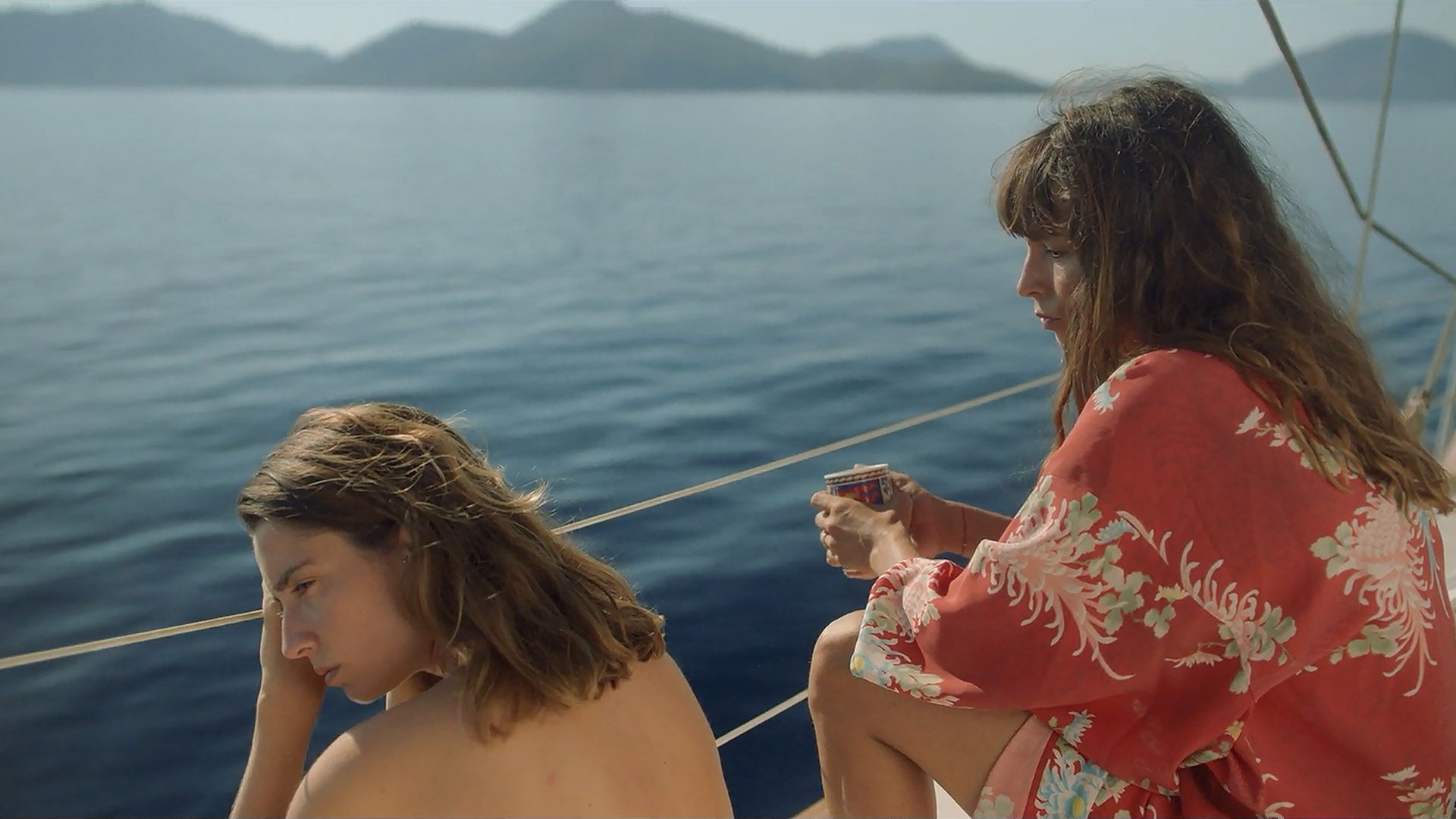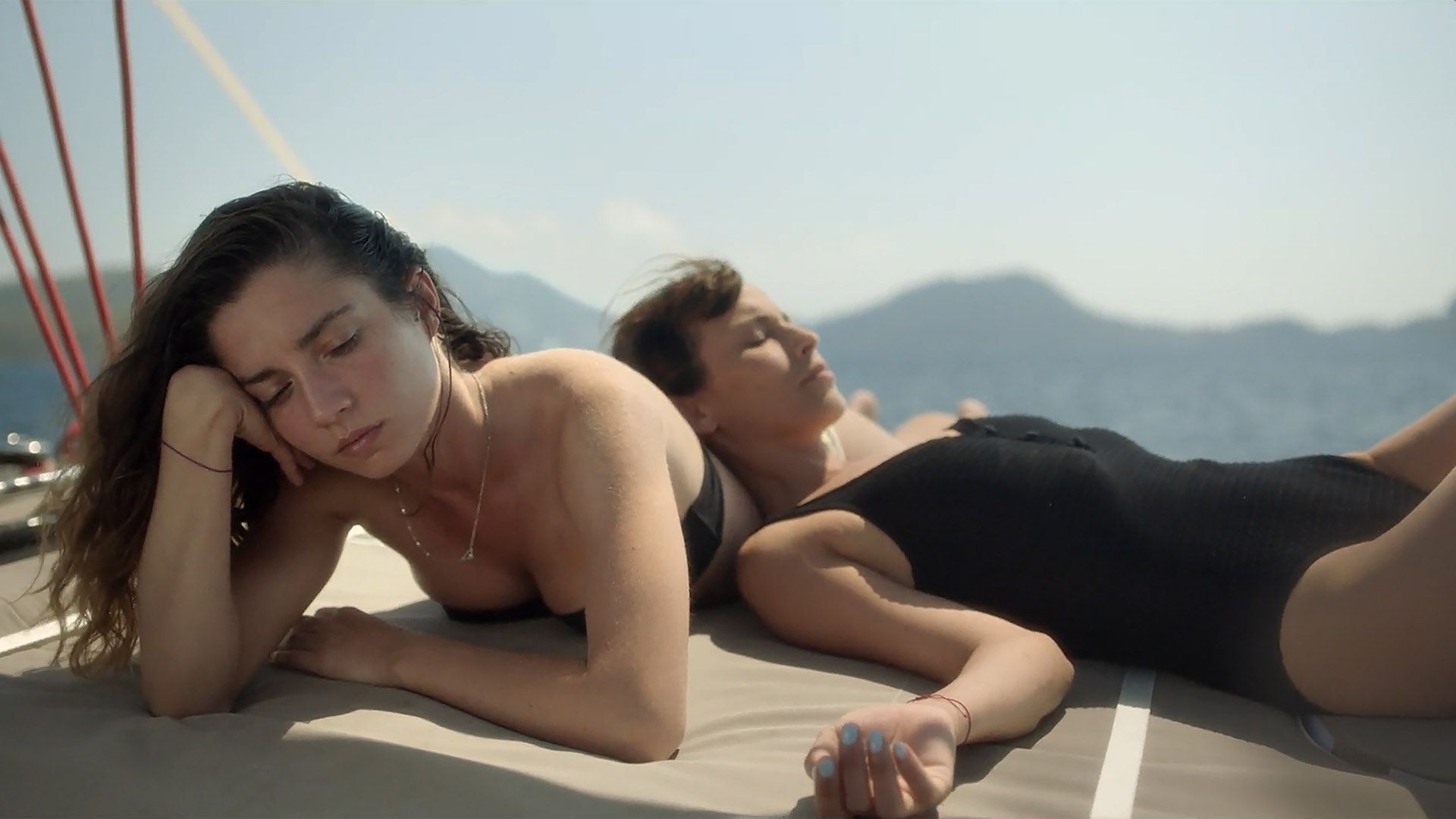
Under the surface of Aslihan Unaldi's holiday drama "Afloat" lies a critique of Turkish society.
The USA-based Turkish director Aslihan Unaldi is well-known at international film festivals. Her debut short film on terrorism Razan was completed in 2006, and garnered attention at the Rotterdam Film Festival. Five years later, the director released a poetic documentary, Overdrive which depicted Istanbul's transformation into a modern metropolis. Additionally, Unaldi co-wrote the
Crystal Moselle´s feminist coming-of-age drama Skate Kitchen (2018).
Aslihan Unaldi's debut feature film Afloat (2023) begins as a family drama set against the picturesque beaches of the Aegean Sea. Film director Zeynep (played by Nihan Aker), who works in the USA, returns to her homeland with her husband Stephen (Oscar Pearce) to take part in a sea voyage on her father's yacht. The idyllic cruise also serves as a family reunion, with Zeynep's estranged younger sister Yasemin (Elit Iscan, known from the hit film Mustang), and their mother Alev (Lila Gürmen) joining as well. However, the calm surface soon shatters with the revelation of old secrets and tensions. It also emerges that Zeynep's father Yusuf (Sernat Ünaldi), a journalist and dissident, is facing an impending guilty verdict...
Andres Mesikepp conducted an interview with Aslihan Unaldi for Tartuff festival. Don't miss the late-night screening on the 8th of august at 23:59!

How much of yourself is in the character of Zeynep? Is the story seen in the film also Your family's story?
"Afloat" tells a very personal story and was initially inspired by my relationship with my sister. My father has a background in the Navy and is an avid sailor (fun fact: he actually plays the father in the film in his acting debut!). When I was in high school, we used to rent a small boat and sail as a family. Some of our most beautiful memories, as well as our biggest confrontations, happened on those trips. The idea for "Afloat" stemmed from these experiences and then grew thematically as I wanted to draw a picture of Turkey through the family drama at the center of the narrative.
You have described Your film as a subtle rebellion. What is the proportion of socially critical films in the current Turkish film landscape?
Not very high in the last decade. As you know, freedom of the press in Turkey is an issue I touch upon in "Afloat" through the story of the journalist father who is being prosecuted. These pressures are present in all other areas that involve freedom of expression, including cinema. Inevitably, film producers have started to practice self-censorship and shy away from certain sensitive issues, especially if there is any political criticism. Interestingly, nowadays mainstream television series seem to engage with socio-political issues more than films.
You have a wonderful skill in telling a harsh story through the beautiful film language. How have you acquired this technique? Who have been your greatest influencers and teachers in cinema?
More than anything, I've learned from filmmakers I admire by watching and rewatching the films I love. I was also lucky to have teachers who taught me how to watch great films, what to pay attention to, and I think this is the best cinematic education. One of these teachers is Boris Frumin, my very first teacher in film school, who is Latvian and has also taught at the Baltic Film School in Tallinn.
Specifically for "Afloat," a big inspiration was Antonioni’s "L`Avventura"; I love how he deals with modern couples and their estrangement, from each other but also from society as a whole.
Your film portrays beautiful and warm relationships between loved ones. Do you believe that beauty and love will save the world?
Yes! I love this idea! I believe beauty, both inner and outer, and our ability to recognize it, connects us to our humanity. There is something profoundly spiritual in that connection. Cinema, being a magical medium, allows us to tell stories that go beyond the mere combination of words and images through the abstract language of emotions and metaphors. When we find pieces of ourselves in these stories, we feel less alone and less hopeless. Afloat explores fractured family relationships and how, despite deep love, we can still hurt each other. It’s also about learning to accept and forgive one another. All the characters are flawed, with their own struggles and dilemmas. My goal was for both the characters and the audience to see these weaknesses and empathize rather than judge. By the end of the film, the characters understand each other a little better, which gives me hope.
In the film, we see a Western family model. How typical is this for today's Turkey?
I don’t have exact statistics, but I would estimate that half of Turkish families follow secular lifestyles. Even though an educated, urban, and secular middle class does exist, it is rarely depicted on the big screen. More often, we see rural depictions or those that emphasize otherness. I’m aware that Turkey is perceived as a very conservative country, that’s partly why I wanted to make a film with urban characters, and in particular, strong, free women who are not afraid to be sexual.